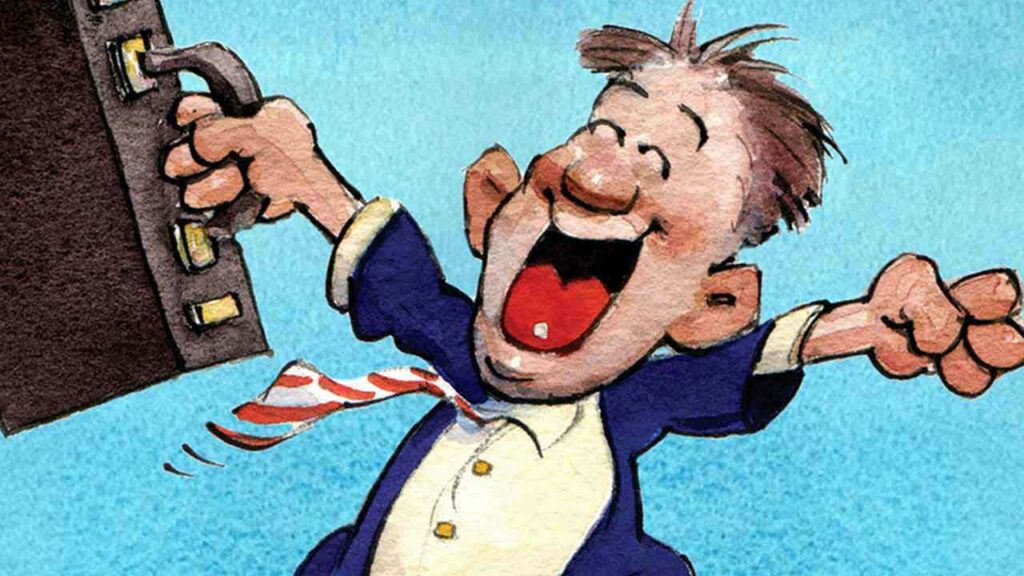Podcast: Play in new window | Download
Subscribe: RSS
In this episode you will learn
- About two billionaires who started small
- A simple strategy to get more of what you want – that kids do better than adults
- What Richard Branson, Serena Williams and Taylor Swift do – that you can do too
- How you develop self-belief
- Why it doesn’t matter where you start.
Mentioned in this podcast
 Click to purchase hardcopy or Kindle.
Click to purchase hardcopy or Kindle.
Links mentioned in this podcast
- My original newspaper article: Five Things That Sucessful People Do.
- Join me on Facebook! Andrew Matthews – Author
Transcript
The Being Happy! Podcast #3
5 Things That Successful People Do This is podcast # 3. Today’s episode is 5 Things That Successful People Do. See if you relate to this story – the names may be different but you will get the idea: You had two friends in school… There was Barry – he was the straight-A student who seemed bound for glory and there was Mary – she was the battler who flunked first-year Economics. Ten years later you discover that Mary is a multi-millionaire. She runs her own company and travels the world. She has her own helicopter. Meanwhile Barry is stuck in the same boring job he got at graduation. You ask, “How come Mary blossomed – and not Barry-the-Brain?” We’ll come to that in a moment. First I want to share my definition of success. You may have your own definition. Here’s mine:
- Success is spending your time doing something that has meaning for you. Ideally, it is doing something in your worktime that you love – but it may be that you do something that has meaning for you in your spare time.If you are raising happy children, certainly that’s success
- Success is making regular progress toward goals you have set for yourself.
- Success is having people in your life that you love – and who love you.
Success is not all about money – but it is about being able to pay your bills and live the lifestyle you want. So, back to Mary and Barry. You say, “How come ordinary Mary became successful – and not Barry-the-genius?” Because Mary has certain habits that successful people have – that matter way MORE than IQ. So what things do high achievers do that YOU can do too? This is a big one: START SMALL Successful people are happy to start small. In fact, successful people will start anywhere they can. Many entrepreneurs start washing cars or building websites at about ten years of age. They develop a “success pattern”. They sharpen their skills. Then they aim higher. Ingvar Kamprad, the founder of Ikea furniture, started business as a young boy selling matches to neighbours from his bicycle. He expanded into fish, Christmas tree decorations and selling pencils before ultimately founding his fold-up furniture empire. You first learn to catch little fish, then big fish. At age 12, Steven Speilberg started making amateur movies of his family’s camping trips. To finance his films he charged his friends admission while his sister Annie sold popcorn. He started small. Surgeons practise on tonsils before they do brain surgery. Ed Sheeran spent years on street corners before he filled stadiums. What’s so important about a success pattern? It’s what gets you to BELIEVE IN YOURSELF. When you know in your heart:
- a) “I’ve prepared for this”
- b) “I can do it!” and
- c) “I deserve it”
you are on your way. Wherever you are headed, start small if you have to – make success a habit. That is the foundation of self-belief. music Here’s what starting small might mean for you – it might mean starting your own accounting business on your kitchen table. It might mean becoming a personal trainer where your gym is actually your garage. It might mean starting your online newsletter with a mailing list of one – and that’s your Mum! Another version of starting small is working for cheap – or working for nothing. This was my story … My aim in writing my first book, Being Happy! was to share some simple happiness strategies that anyone could use. But I had another goal in writing that book– and that was I wanted to become a speaker – so I could share my message firsthand at conferences and conventions. When Being Happy! was first released, I began travelling to different countries to promote my book. So I would do radio and TV interviews and I would make bookstore appearances. And schools began to ask me to speak and universities. I went everywhere, I went anywhere. I would get all dressed up, go to the venue, set-up, do my talk, back to my hotel, all for free. But I was learning my craft. I remember one time I was in London. I was booked to give an evening talk to 200 people in Portsmouth. To drive to Portsmouth from London should take an hour and a half. That day the weather was so bad, I left at lunchtime. It took four and a half hours to get there – through fog and driving rain – and floods. I get to the venue. There’s nobody there. Just the organiser. So we wait an hour and nobody shows up. And finally he says to me, “Do you want to start?” “Do I want a start?” There’s two people in this hall and one of them is me! I spoke in hospitals. I spoke in prisons – in Australia, in Singapore, in the USA – I remember speaking to the Mabel Bassett Maximum Security Women’s Prison in Oklahoma. Prisons and hospitals are wonderful places to practice your public speaking – your audience can’t leave! In three years I gave about 250 presentations – at no charge. And then one day – my wife Julie, who is my publisher – and a very smart lady – called me into her office and said, “I just booked you for another speaking job. You are speaking in Perth, to a company called Omegatrend, they are going to fly you business class, they are going to put you up in a five star hotel – you speak for 45 minutes and they are paying you … $2,500 dollars.” Wow! Finally I was a professional speaker. I was so happy. Now lucky for me that Julie came along or I might still be speaking for nothing. In fact, I am so lucky that Julie came along, full stop, period. Julie is the most extraordinary lady I know. That’s a subject for another podcast. Here’s the point. Sometimes starting small means starting cheap, doing whatever you can wherever you can – getting a reputation and refining your craft. If there is a company you want to work for, offer your services for free. Obviously, it’s not so easy to do that with a multi-national corporation. You can’t go up to Google and say, “Let me work with you for a while.” But with a small business, with a family business, you can say to the boss, say to the owner, “Let me work for you for a couple of weeks.” Let me show you what I can do – if you are a chef, or a travel guide or a computer programmer or a graphic artist – go to work for free. Blow ventolin inhaler 200 doz their mind. You say, “What if they say , “No!”? Look, you are unemployed. You’ve got nothing going for you. So you speak to ten companies and nine say, “No” and one says, “Yes!” You’re in business! music You can start small with anything. For you it be your savings plan, saving just $20 per week – but doing it every week It might mean writing your first book – writing just one page per day, before breakfast It might mean you start your fitness plan, and you begin with walking every just ten minutes a day. It might mean starting your music career in your local café, to an audience of ten. Never be ashamed of starting small. music BREAK YOUR GOALS INTO SMALL STEPS Whether you are aiming to be an architect, whether you are training for a marathon or just wanting to clean out your office, break your journey into bite-size pieces. Here’s what psychologists will tell you that you already know: You are much more likely to finish jobs that can be completed in 15 minutes. Divide big tasks into manageable chunks. Make to-do lists. Tick off each task. Celebrate small steps of progress. Did you ever spend a year telling yourself, “I’m going to tidy my desk. And you never do it! It all seems too hard. You look at the mess and say “where do I start?” When you divide up desk-tidying into a list of things, suddenly you know where to start – so your list might look like this:
- file all my receipts
- throw out all the old magazines
- tidy my top drawer
- put all my files back into the filing cabinet
- organize my usb sticks
- organize the business cards and photos
- donate all my loose coins to charity.
Suddenly you have a job you can handle. You can focus on one task at a time. Whatever the project, whatever the job you have to do, divide it into chunks. music ASK FOR HELP People who GET WHAT THEY WANT in life – they know how to ASK for what they want. Kids know how to ask – and when grown-ups say, “NO!”, kids don’t take it personally. “Can I have an ice cream?” “No.” “Can I have an ice cream?” “No.” “Can I have an ice cream?” “No.” “Can I have an ice cream?” “No.” “Can I have an ice cream?” “Ask your father.” “Dad, Mum says I can have an ice cream.” We can learn from kids! YOUR success and happiness depend on you ASKING for what you want. For small things …
- “May I have a refund?”
- “Can you reschedule my appointment?”
- “Can we go on a date?”
And for big things …
- “Can I WORK for you?”
- “Will you MARRY me?”
Other people aren’t mind readers. Often, they will happily help you – or even marry you – if they just KNOW what you want. Asking for what you want keeps you happier and healthier. Ask more often and more good things will happen for you. The more often you ask, the better you get to handle rejection. If there is one thing that high achievers do well, it’s handle rejection. music LOVE WHAT YOU DO Successful managers, pilots, plumbers, policemen love their work. When you love your work you have that special energy – you are enthusiastic, you are caring. You become a magnet for opportunity, so you flourish. When you love what you do, research is a pleasure, study is a pleasure. Work is a pleasure. Julie and I have some dear friends, Frank and Maria. They are Italian. They love Italian food. In the last 40 years they have owned a dozen different cafes and restaurants. And they are always successful. They don’t have MBA’s. They have love. They love beautiful fruit and vegetables – and they will go anywhere to get good produce. They buy the best tomatoes, the best lettuce, fennel, the best fish, the finest calamari. They buy with care. They cook with love. And they serve you with a huge smile. They are so proud of what they do. How can anyone compete with that? Imagine that you need to have a kidney removed. You are choosing between two surgeons – one loves being a doctor, the other loves his BMW. Which one would you pick? Whatever you do for a living, you are competing against people who love what they do. If you dislike your work, you are dead in the water – which means you have two choices – either change your attitude or change your job. I touched on some of this in Podcast #2: Enjoying Your Work – if you haven’t heard it, have a listen. music PICTURE YOUR SUCCESS People like Richard Branson, Serena Williams and Taylor Swift visualise their success. They play movies in their minds. Why? Because we become what we think about. Whether you want to be an inspiring leader or a great teacher or the next Roger Federer, you must picture your own success, over and over and over. In the 1970’s Fred Couples and Jim Nantz were suitemates at the University of Houston. Fred was a dedicated golfer with dreams of winning the US Masters and Jim – Jim had ambitions of becoming a top sports announcer. Together, they would often playact a scene where Fred, having just won the US Masters, was interviewed by the CBS announcer, Jim Nantz. In 1992, Fred won the Masters. He was ushered into the Butler Cabin to receive the famous green jacket – and there, to get the inside story, was CBS’s Jim Nantz. At the close of the interview they embraced with tears in their eyes, no doubt reflecting on how the imaginary scene that they had so often rehearsed in Houston had just unfolded before the world in Augusta. And so you ask, would Fred Couples have won the Masters Golf Championship without all the playacting? Would Jim Nantz have achieved his dream without the playacting? Would it all have happened anyway? Here’s what I know: there’s not a successful actor, astronaut, brain surgeon, pilot, pop star, president or pole dancer that didn’t imagine their dream over and over and over again long before it happened. Everything is connected and nothing happens “anyway”. Children picture success quite naturally. It is why kids learn so fast. Do you want to be more confident at dinner parties, would you like to hit better golf balls, would you like to sell more real estate? See it in your mind. Anytime you have a spare moment, play your mental movie. Wherever you are headed, start small if you have to and make success a habit. No one is born with special permission to succeed. We succeed by adopting the habits of successful people. music This podcast is based on a newspaper article I wrote. If you would like to read the original article, or perhaps share it, there is a link to it on my website at www.andrewmatthews.com/podcasts Hi to my friends in Singapore and Malaysia. I have had some emails during the week saying, “Andrew, where can we buy your books here? They are in Popular Bookstores, in Times, MPH, Kinokuniya and at the airports. In my next podcast, podcast #4, I’ll be talking about Dealing with Disasters – how do you handle disappointment? How do you bounce back from failure? If you are enjoying these podcasts, please post a comment on Itunes. Let me know what you think. Give me some encouragement! Until next time, I wish you success and happiness.



